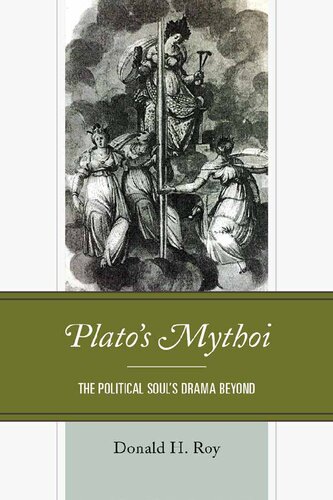

Most ebook files are in PDF format, so you can easily read them using various software such as Foxit Reader or directly on the Google Chrome browser.
Some ebook files are released by publishers in other formats such as .awz, .mobi, .epub, .fb2, etc. You may need to install specific software to read these formats on mobile/PC, such as Calibre.
Please read the tutorial at this link: https://ebookbell.com/faq
We offer FREE conversion to the popular formats you request; however, this may take some time. Therefore, right after payment, please email us, and we will try to provide the service as quickly as possible.
For some exceptional file formats or broken links (if any), please refrain from opening any disputes. Instead, email us first, and we will try to assist within a maximum of 6 hours.
EbookBell Team

4.1
80 reviewsRecently, in the past thirty years, there has been an upsurge in serious treatment of Platonicmythoi, which were once thought to be only literary decoration and/or the simplistic presentation of philosophic conclusions for thedemos(dummies in effect). Nevertheless, the dominant tendency in the exegesis of Platonicmythoistill is to subordinate them to philosophiclogos(reason) and not to recognize that suchmythoiare philosophic in themselves in the broad sense of “the love of wisdom”. There is something conversional about Plato’s philosophicmythos, reformulating and superseding traditional Greekmythosand then charting the drama of the human soul from Socraticaporia, up and out of the cave, and into the beyond, the Idea of the Good. The late Professor Eric Voegelin understood this existential drama, and his exegesis of Platonicmythos, from engenderingpathosto symbols, is revelatory to say the least. My understanding is thatlogos(reason) is a fundamental and necessary check onmythos, butlogosandmythosare complementary via medias; neither are dispensable nor reducible, one to the other. Also crucial to my study of Platonicmythoiis the “analogy of being,” that Voegelin only touches on, but Erich Przywara explores and develops. The relationship between the human and the divine is analogical (likenesses but also significant unlikenesses), and Plato certainly explored the play of opposites and affinities covering the difficult philosophical problems of becoming and being and the temporal and the eternal. Most philosophic commentators on Plato ignore the suffusive presence of the divine in Plato’s love of wisdom. Perhaps only Platonicmythosat its best offers the philosophic imagination the vision of transcendence.